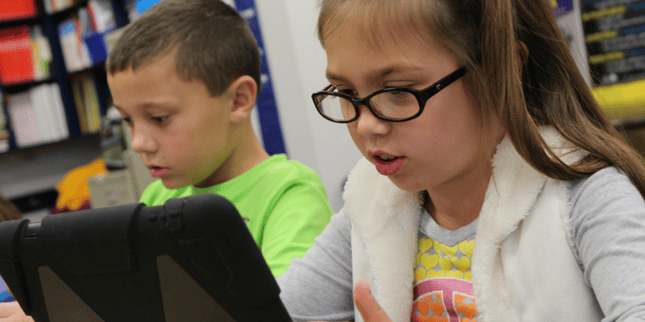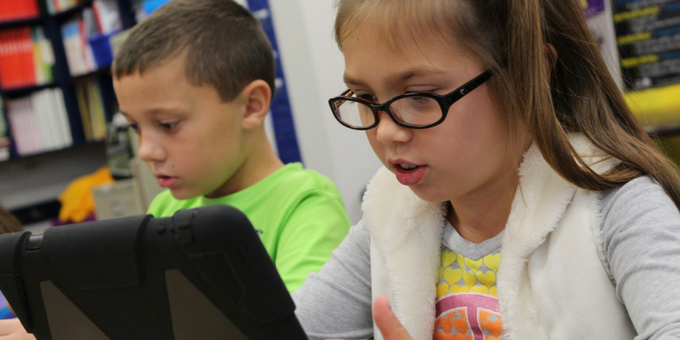
Fake news—who writes it, how it spreads—is on everyone’s mind lately. But it’s not just news readers should be concerned about which stories are true and which are false.
As more students use the Internet for homework and research projects, school administrators find themselves on the offensive to ensure online sources are reliable, verifiable, trusted and safe.
A Pretty Bleak Picture
Today, when given a topic for a research paper, the first impulse for many students is to go online to search for information. And who could blame them? The Internet offers a treasure trove of information. No longer are students constrained by what’s in their school or local library. In many ways, they have access to libraries around the world.
But with this vast accessibility comes the very real danger of students (and teachers) stumbling upon and using resources that aren’t reputable, or that haven’t been vetted by scholars, editors or subject-matter experts. It’s the Wild West out there, and new trends in social media and sponsored content make it difficult for even a wary individual to determine what’s genuine and what’s not.
A recent study by Stanford University paints an unfortunately bleak picture of how students are coping with this new age. From January 2015 to June 2016, researchers gave a series of tasks and assignments to students in both under- and well-resourced schools (middle schools, high schools and colleges) in 12 states. The goal: Test these students’ online civic reasoning skills. What did the study find?
- More than 80 percent of middle-school students believed that a piece of native advertising (identified as “sponsored content”) was a real news story.
- When presented with a social media post featuring a compelling image, less than 20 percent of high-school students questioned the source of the post (or the photo).
- Less than one-third of undergraduate students could explain how political agendas might influence the content of a tweet.
Information Fluency Matters
According to the Stanford University study, digitally savvy students “may be able to flit between Facebook and Twitter while simultaneously uploading a selfie to Instagram and texting a friend. But when it comes to evaluating information that flows through social media channels, they are easily duped.”
This is why, now more than ever, research and information fluency (and the critical thinking behind it) are the most powerful skills a 21st-century student can have. Ease of accessibility should be no excuse (or permission) for cursory reading and analysis, or for accepting what you see online at face value.
So essential is information fluency that it’s one of the seven standard skills highlighted by the International Society for Technology and Education (ISTE). Students should be able to:
- develop solid strategies to guide their intellectual inquiries;
- locate, analyze, synthesize and ethically use information from different media sources; and
- evaluate information sources based on their appropriateness.
7 Ways to Improve Information Fluency
What are some of the practical tips students, teachers and administrators can use to better evaluate the content they find online, on popular websites like Wikipedia and via social media sources like Facebook and Twitter?
- Play the Reporter. Students should never be afraid to ask questions. Who wrote this article? How did you come across this article? What possible agenda could the author or the publication have? When was the article written? Do you agree with what’s being written—and if not, why?
- Check Multiple Sources. It’s tempting for students to just go to one source and call it a day. But it’s essential they corroborate information with other articles and sources on the same topic. Online research shouldn’t be a one-stop shop. Think of it more like comparison shopping.
- Use Search Terms. Good information fluency requires you to do more than just type a random string of words into a search engine. Instead, students should be taught how to refine their online searches as a way to better source reliable, trusted content and information.
- Filter Internet Outside the Classroom. While schools already filter Internet inside the classroom, many districts are discovering how filtered, broadband Internet outside the classroom can help keep students away from tempting social media sites and ensure they’re only accessing safe, academically vetted content they can use for homework. Discover the top 10 educational websites students are actually visiting.
- Trust Your Sources. Before assigning students homework or research projects that rely on the Internet, give them a quick primer on reputable places to start their research. Some sources to start include Google Books, Google Scholar and Encyclopedia Britannica.
- Avoid Plagiarizing Others. Considering all the free information sources out there (many of them without bylines), it can be tempting to pass off someone else’s work as your own. Students should always be well-informed on how to avoid plagiarism, whether intentional or accidental.
- Talk to Librarians. A conversation with your school or local librarian (either in person, over the phone or via email) will always be a reliable way to secure verifiable information. It’s surprising how so many students now bypass the free resource located right next to their classroom.
The days of resorting exclusively to thick, dusty reference books for research and study are gone forever. But that doesn’t mean critical thinking skills are useless or out-of-date. In fact, in our information-saturated age, they’re more important than ever.
With better information fluency, students, teachers and administrators can safely navigate the choppy waters of the Internet. They can stay anchored to the truth in a seemingly “post-truth” age.
Discover how Kajeet Education Broadband™ can help ensure students in your school district have 24/7 access to safe, trusted, verifiable information—outside the classroom.



